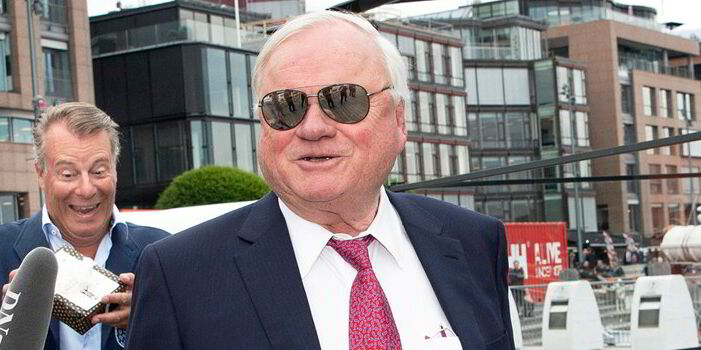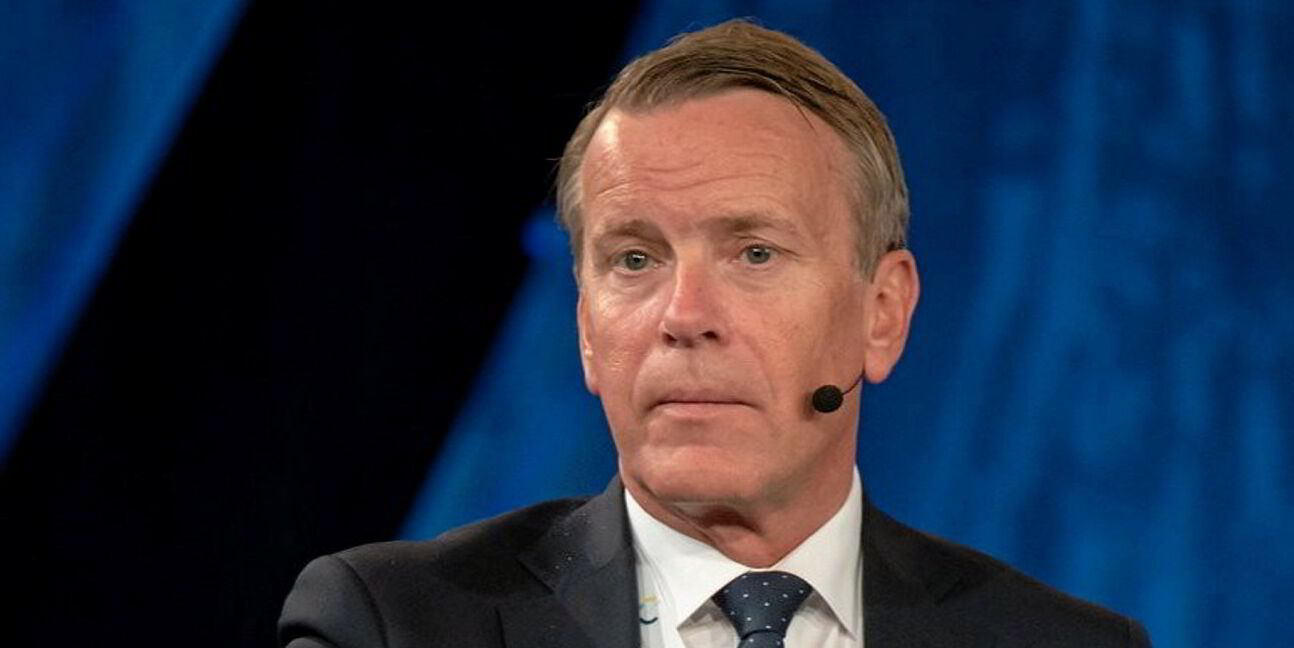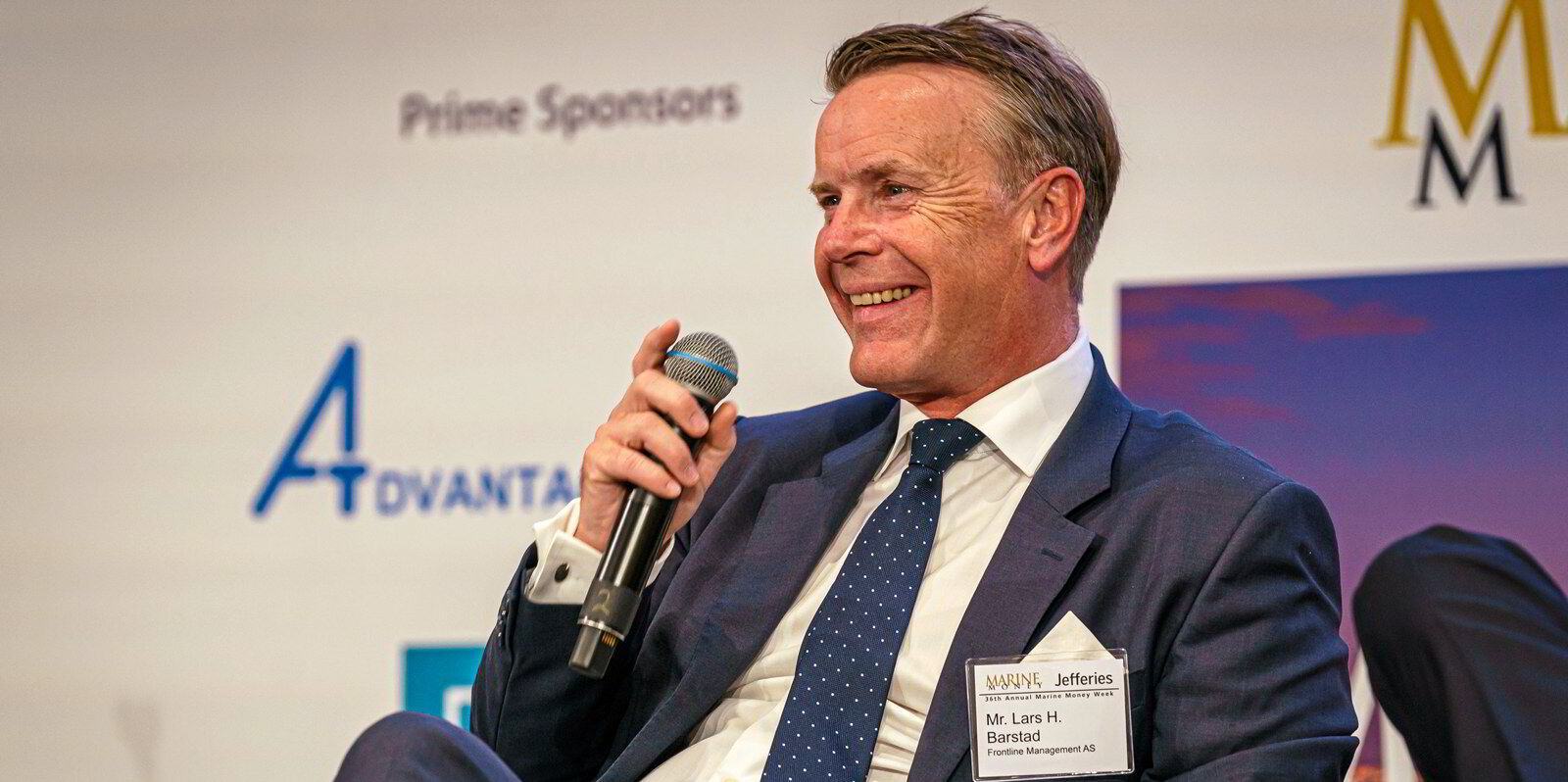Frontline shares plunged after a disappointing third-quarter report on Wednesday.
However, several analysts recommend buying the stock in fresh notes.
After the fall, the John Fredriksen-backed tanker company is the “cheapest it has been in years”, according to Fearnley Securities.
“With [the] cat out of the bag, and pricing coming down, ‘peak negativity’ should not be far away, we believe,” analyst Fredrik Dybwad said.
“Moreover, a potential rate rally in 1Q due to changing seasonality, as written about in our last report, is arguably not priced in.
“Hence, equity valuation provides a highly attractive risk-reward profile, with lesser downside than upside, arguably,” he reasoned.
Fearnley Securities reiterated a buy rating and adjusted the target price to NOK 313 ($28) from NOK 320.
Dybwad added: “As Opec+ delays the unwind of production cuts, and Iran continues to export high levels of crude, VL rates have been an involuntary casualty.
“There are signs of higher scrutiny on Iranian crude, which coupled with less favourable economics (narrowing price discount) could lead to a transfer of [barrels] from sanctioned vessels to non-sanctioned.
“Moreover, the longer the current situation persists, the stronger the reaction once the ceiling breaks, we believe.”
Clarksons kept a buy recommendation with a revised target price of NOK 300, previously NOK 350.
“Ongoing freight rate weakness, combined with challenging macroeconomic conditions, suggests limited improvement in the near term. However, looking ahead to 2025, there are potential catalysts for recovery,” analyst Frode Morkedal said.
Chinese independent refiners may also increase activity after a significant drop in imports in 2024.
“Furthermore, speculation about tougher Iran sanctions may create upside potential with the transition to a new US administration in January,” Morkedal said.
Clarksons estimates that non-eco VLCC rates of $40,000/day in 2025 are sufficient to deliver a 10% dividend yield. At $50,000/day, the yield could rise to 15%.
“This outlook is supported by minimal fleet growth in 2025, strong growth in Atlantic crude oil production and potential constraints on restricted tanker usage, which creates an attractive risk/reward profile,” Morkedal said.
DNB Markets also maintained a buy rating but lowered the target price to NOK 310 from NOK 340.
“Scepticism among investors and recent news of possible Opec+ output delays and Middle East de-escalation seem to be at the heart of the reaction to Frontline’s Q3 report,” analyst Jorgen Lian said.
“However, we continue to see signs of a market at a tipping point, with potential triggers to reignite belief in the tanker story. At a historical discount to NAV, we believe too much negativity is priced in,” he added.
DNB expects no enduring peace in the Middle East imminently and, therefore, no end to the Red Sea situation or an easing of risk to oil supply.
“Further, stricter enforcement of trade sanctions (which we find a likely scenario in 2025) would benefit the wider tanker market and drive up demand against a still-attractive delivery outlook,” Lian said.
DNB sees an attractive valuation, with the stock trading at “a rare and historically large discount” to its net asset value/share of NOK 214.
Frontline shares traded around NOK 187 in Oslo on Thursday.






